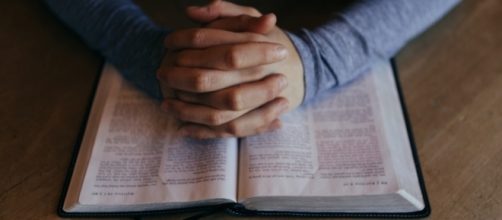Much of the fear of Muslims is based completely on misinformation and a gigantic blind spot about what freedom of religion really means. Sharī'ah Law is at the top of many people’s concerns.
The bottom line
What people ignore is that as with all the other religious legal systems which I describe below, operating in the US today, you can always opt out of whatever religious system you object to by simply turning to the US court system.
The same applies with Sharia Law, as with all the other formal, semi-formal, and merely customary religious legal systems which are currently operating in the US.
Shaker religious law said members couldn’t procreate or have sex at all. They aren’t around now, but any Shaker who objected simply left the church and the church law.
Interestingly, many of the worst parts of Sharī'ah Law are similar to the laws laid down by Leviticus in the Old Testament, such as the death penalty for “minor” crimes. Fundamentalist Christians who believe every word in The Bible don’t kill their mothers for wearing cotton-blend clothes, or their neighbor the fireman for working on Sunday.
Interestingly, The Qu'ran doesn’t blame Eve for any original sin and actually mandates the need for women doctors. Muslim women have total control of their own wealth with zero responsibility for family debts - they have greater financial protection under Sharia Law than married women do under State laws.
Religious courts in the US
Some (many?) Americans fear the imposition of Sharī'ah Law because some Muslims want to follow modified Sharī'ah Law and be voluntarily governed by those religious laws. But they turn a blind eye to their own religion and others which have religious laws.
They complain about Muslims while ignoring Jewish areas where religious law is observed and Rabbis’ decisions take the place of the State or Federal courts systems. There is a network of Halakha (Orthodox Jewish) religious courts which preside over those who voluntarily submit to their jurisdiction, usually in family-related matters such as inheritance, marriage, and divorce. These laws often differ markedly from local, state, and federal laws.
When these Halakha courts rule in contrast to local laws, the people who submit to their jurisdiction can always choose to ignore the ruling and turn to civil courts, although they may be subject to ostracism from their local religious communities and families. The same holds true for Amish Americans who follow their own religious-based rules which have no legal force of law in the outside community but which are voluntarily obeyed because of the threat of ostracism from their community if they break the community laws or simply because they believe they are right.
Mormons (JCLDS) similarly have strict rules which amount to another legal system which they impose on members who voluntarily accept them.
Catholics have their own rules for lay people and ecclesiastical courts which operate under the Code of Canon Law.
All of these are the exact equivalent of Sharī'ah Law in the US. Muslims may choose to follow Sharī'ah Law, usually modified to ignore the more draconian rules about stoning and chopping off limbs.
Any fundamentalist Christian should be familiar with similar religious laws which people can choose to follow with limitations, such as all the death penalty infractions listed in Leviticus (very similar to Sharī'ah Law).
The problem with all of these religious-based legal systems comes when they violate civil laws and don’t permit people to opt out of their punishments or, even worse, they seek to impose on others the laws which they voluntarily accept, such as bans on abortion.
Interestingly, Muslims, Orthodox Jews, Mormons, and in their day even Shakers didn't and don't want to make others follow their religious laws, although many Christians do.
(Please note, your reporter is not supporting or opposing any of the religious legal systems mentioned, merely pointing out verifiable facts.)

